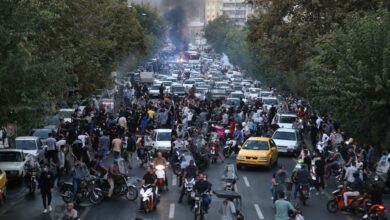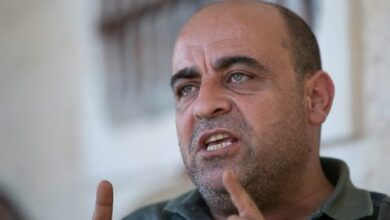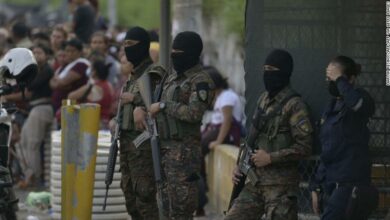Alexandria – After a long wait and expectations of a verdict, Alexandria's criminal court on Thursday adjourned, until 24 September, the trial of two police officers accused of killing Khaled Saeed, and ordered the formation of an independent committee to investigate his death. Protesters outside the courthouse, however, were not satisfied with the decision.
Saeed, born in 1982, was allegedly beaten to death after being illegally arrested by two police officers in Alexandria on 6 June, 2010.
Judge Moussa al-Nahrawy has decided to form a third forensic committee, composed of professors from Cairo, Ain Shams and Alexandria Universities, to give its opinion about two conflicting autopsies on Saeed.
Saeed's lawyers welcomed the decision.
"This was our request from the beginning. We have been troubled by the state-sponsored autopsy, which we all know was manipulated," said Rafaat Nawar, Saeed's lawyer. "The decision is very positive," added Nawar.
A state autopsy last year declared that Saeed died after choking on a bag of marijuana. His family, and former Egypt's chief medical examiner, Ayman Fouda, accused the report of being politically motivated.
The family submitted another report prepared by doctors saying that his death occurred because he was beaten by police.
Lawyers say that Thursday's session was the shortest in the case yet. A bailiff read the decision outside the court room, fearing that clashes would erupt inside.
The court has decided to form a committee composed of professors of fine arts to verify the validity of images depicting Saeed upon his death. The pictures show fractures in the face and jaw.
When asked about the meaning of such a decision, Ramy Abdel Karim, another lawyer for Saeed, said that further investigations could be intended to bring about harsher sentences for the two officers accused of killing Saeed.
Previously, the two police officers were accused only of “harsh treatment,” a crime that carries a sentence of seven years.
"There is a possibility that the new investigation will tell the court that the reason [for Saeed’s death] was police brutality. In this case, the accusations against the two detectives from the Sidi Gaber police station will be turned to torture leading to death, which could warrant the death penalty," said Abdel Karim.
Scores of protesters who gathered in front of the court house after 8 am were not satisfied, however.
Wael Samir, a coordinator of the revolutionary youth coalition, condemned the decision.
"It's not about forming committee or not. It's about the slow path of justice after the revolution. People are not convinced by these delays," said Samir.
Earlier this week a case accusing former Interior Minister Habib al-Adly and six of his aides of killing protesters during the 25 January revolution was postponed until late July.
Protesters chanted slogans against the ruling Supreme Council of the Armed Forces, while the military cordoned off a court house. No police staff were present.
The prominent Facebook group, “We Are All Khalid Said,” created by Wael Ghonim, publicized his death and contributed to resentment against the police. The group, which helped to mobilize popular anger against the government, was a catalyst for Egypt’s recent revolution that began on 25 January, 2011, and resulted in the ouster of former President Hosni Mubarak 18 days later.
The court’s administration cancelled all the sessions for other cases in order to provide sufficient security for Saeed's session, a court employee told Al-Masry Al-Youm.
Ali Kassem, one of Saeed's relatives, said that he has been optimistic since the case began in July, 2010.
"Throughout six sessions, the panel listened to all the requests made by the lawyers [of Saeed]. And his decision to form a new forensic committee has always been our demand," Kassem told Al-Masry Al-Youm.




